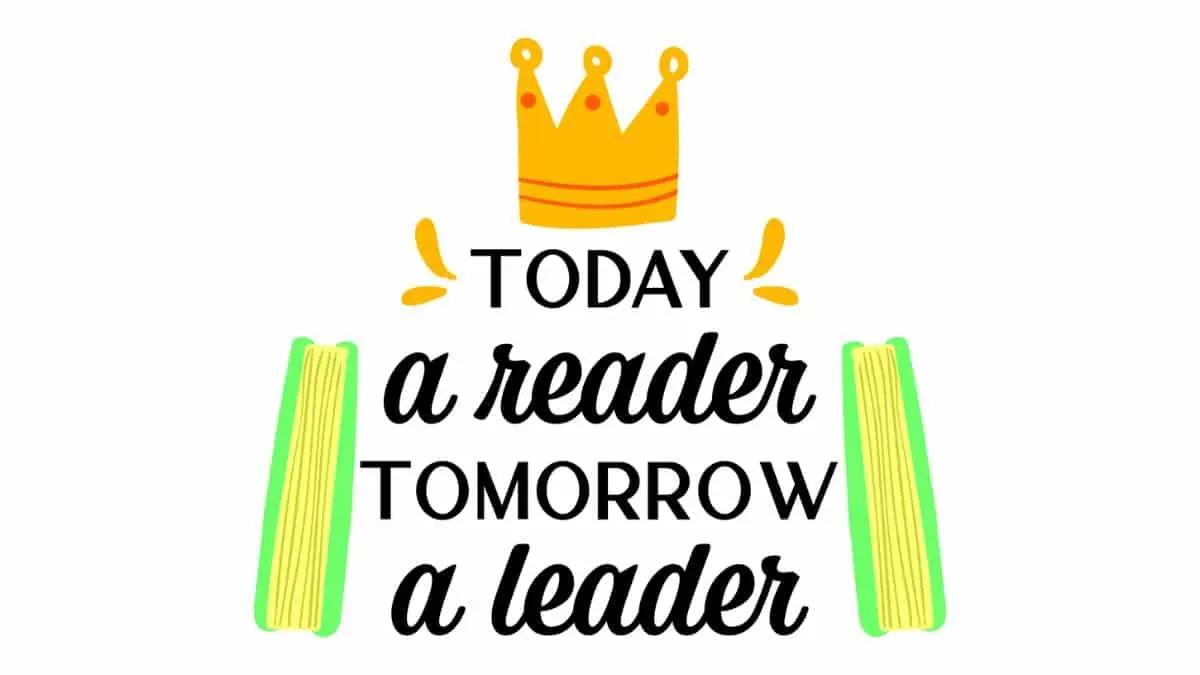- You might wonder how reading fiction could be as valuable as reading non-fiction for a would-be leader.
- Reading habitually enriches your vocabulary and understanding of language nuances, allowing you to articulate your thoug…
- As mentioned earlier, reading helps to sharpen your critical thinking skills.
- As your reading broadens your vocabulary and understanding of language, it equips you with the tools to communicate more…
- To further illustrate the relationship between reading and leadership, let’s consider some real-world examples.
- He attributes much of his success to his voracious reading habit, stating that reading fuels his curiosity and learning.
In a world swamped with tweets, soundbites, and TikTok videos, the phrase “Today a reader, tomorrow a leader,” originally attributed to Margaret Fuller, feels like a nostalgic nod to a bygone era. But could this old adage hold the secret formula to effective leadership in our modern, fast-paced society? The saying has stood the test of time for good reason—it encapsulates the profound connection between the intellectual nourishment gained from reading and the indispensable skills needed for leadership.
The Virtues of Reading
Reading is often viewed as a leisure activity, a way to escape the real world and delve into imagined ones. While this is certainly one of its joys, reading offers much more than entertainment; it’s an exercise in mental agility, a tool for empathy, and a treasure trove of knowledge.
Knowledge Acquisition
The most straightforward benefit of reading is the acquisition of knowledge. Reading exposes us to new ideas, cultures, philosophies, and even entire fields we might not encounter otherwise. When you read, you’re essentially having a focused conversation with the author. Books on history provide context for current events; science books offer insights into the world around us; philosophy books challenge our basic assumptions, and so on. Leaders need a broad understanding of multiple subjects to navigate the complexities of today’s world successfully, and there’s no better foundation for this than a well-read mind.
Critical Thinking
Reading is not merely a passive absorption of information; it’s an activity that requires engagement and cognitive effort. A good book challenges your beliefs, pushes you out of your comfort zone, and forces you to question the status quo. Critical thinking skills are honed when you analyze various viewpoints, compare and contrast ideas, and draw your own conclusions. These are exactly the skills that leaders need when making decisions that have far-reaching implications.
Empathy & Emotional Intelligence
You might wonder how reading fiction could be as valuable as reading non-fiction for a would-be leader. The answer lies in the power of storytelling to foster empathy. When we immerse ourselves in the lives of characters, we see the world from multiple perspectives, understand different cultures, and even experience emotions we might not have otherwise. This heightened sense of empathy and emotional intelligence is crucial for leadership. A leader who can understand and relate to the feelings of others is far more effective than one who cannot.
Enhanced Vocabulary and Communication Skills
A broad vocabulary is more than just a sign of intelligence or education; it’s a tool for effective communication. Reading habitually enriches your vocabulary and understanding of language nuances, allowing you to articulate your thoughts more clearly and persuasively. In leadership, the ability to communicate effectively is paramount, whether you’re giving a motivational speech, writing a compelling proposal, or merely sending an email.

The Transition to Leadership
Now that we have established the inherent value of reading, the next logical question is: How does this translate into leadership? While it’s one thing to sit in the comfort of your home with a good book, it’s quite another to lead a team, manage a project, or run an organization. The leap might seem significant, but the skills and traits nurtured by a consistent reading habit can serve as vital stepping stones on the path to effective leadership.
Knowledge as Power
The age-old saying “Knowledge is power” still rings true, especially for leaders. The insights and information acquired through reading empower you to make informed decisions. It is difficult to guide a team through a problem you don’t understand; hence, a well-read leader is better equipped to tackle diverse challenges. Your depth of understanding across a wide range of topics allows you to approach problems holistically, incorporating various perspectives.
Decision-Making Skills
As mentioned earlier, reading helps to sharpen your critical thinking skills. In a leadership role, you are often required to make quick yet informed decisions. The ability to assess a situation, weigh the pros and cons, and anticipate outcomes is cultivated through years of mindful reading and understanding complex narratives or theories.
Communication
An effective leader needs to articulate their vision clearly and persuasively. As your reading broadens your vocabulary and understanding of language, it equips you with the tools to communicate more effectively. Whether you’re pitching a new idea, negotiating a deal, or inspiring your team, the way you convey your thoughts can make all the difference.
Visionary Thinking
Broad reading—especially in fields like history, science, and philosophy—can help you develop a long-term perspective. Leaders aren’t just responsible for solving today’s problems; they’re also tasked with preparing for the future. Reading allows you to see beyond immediate challenges and focus on bigger objectives, thus fostering visionary thinking.

Real-world Examples
To further illustrate the relationship between reading and leadership, let’s consider some real-world examples. These case studies and profiles highlight leaders who have leveraged their reading habits to achieve remarkable results.
- Barack Obama: The former President of the United States is known for sharing his reading lists, which span genres from fiction to historical non-fiction. His diverse reading habits have been cited as a contributing factor to his nuanced understanding of global and domestic issues.
- Bill Gates: The co-founder of Microsoft is also an avid reader, often publishing book reviews and recommendations on his blog. He attributes much of his success to his voracious reading habit, stating that reading fuels his curiosity and learning.
- Oprah Winfrey: Known for her influential book club, Oprah has fostered a culture of reading among millions. Her leadership in media and philanthropy showcases how a love for reading can intersect with impactful leadership.
Conclusion
The adage “Today a reader, tomorrow a leader” may sound simple, but as we’ve explored, its implications are far-reaching. Reading is not merely an escape into different worlds; it is an investment in our intellectual and emotional faculties—qualities that are critically important in leadership. From gaining a holistic understanding of various subjects to refining critical thinking and fostering empathy, reading serves as the building blocks for many of the skills that define effective leaders.
Also Read: Nowadays people know the price of everything and the value of nothing – Oscar Wilde



